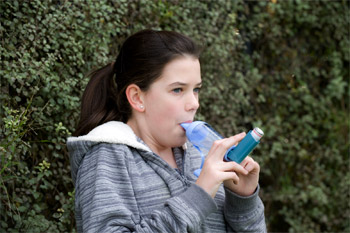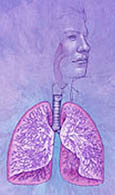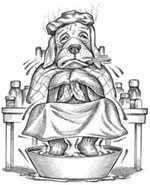Triggers Spike In Asthma Emergencies

Triggers Spike In Asthma Emergencies
Parents and teachers are being warned to prepare for a spike in asthma emergencies when children return to classrooms for the start of the 2015 school year.
The National Asthma Council Australia says that the 1 in 10 school children with asthma face a significant increase in the risk of asthma flare-ups and hospitalisation during the first few weeks of the school term.
'The phenomenon of -back to school asthma' is well known, and the common cold is likely to be the culprit," said the Council's Chairman, Dr Jonathan Burdon AM.
Research suggests the spike may be prompted when children are exposed to cold and flu viruses on returning to the classroom. A new study has found that these viruses are associated not just with serious asthma flare-ups, but also with day-to-day asthma symptoms such as wheeze, cough and chest tightness.
'Even in the summertime, viruses are common and readily spread around school classrooms, which can lead to asthma flaring up in children, and cause a spike in hospitalisations and days off school due to asthma in the few first months of the school year.
'Factors such as stress, a change of environment or allergens and less strict asthma management over the holidays can also lead to asthma problems," Dr Burdon said.
Back to School Checklist for Parents of Children with Asthma
Recommendations from the National Asthma Council Australia to help children have a healthy start to the school year:
Ensure your child has an up-to-date written asthma action plan prepared by their doctor
Give the school or childcare a copy of your child's asthma action plan and tell teachers and staff if your child requires help with using their puffer
Get your child back into their daily asthma routine before the school year begins, including taking preventer medications every day if prescribed
Pack a reliever puffer and spacer in your child's school bag – check that the puffer isn't empty or out of date
Make sure your child knows how to use their puffer by themselves (if old enough), or with help
Ensure your child feels comfortable asking for help or telling their teacher if they are getting asthma symptoms
Talk to school administrators about possible asthma triggers and whether staff members receive training on how to recognise and respond to asthma symptoms.
'It's important that preventer medications are taken, when prescribed, and that both children and carers are familiar with their reliever puffer and know how to use it correctly," Dr Burdon said.
'Taking these preventative measures before and during the first few weeks of school can go a long way to helping keep children with asthma out of hospital."
Have You Seen This?
MORE









